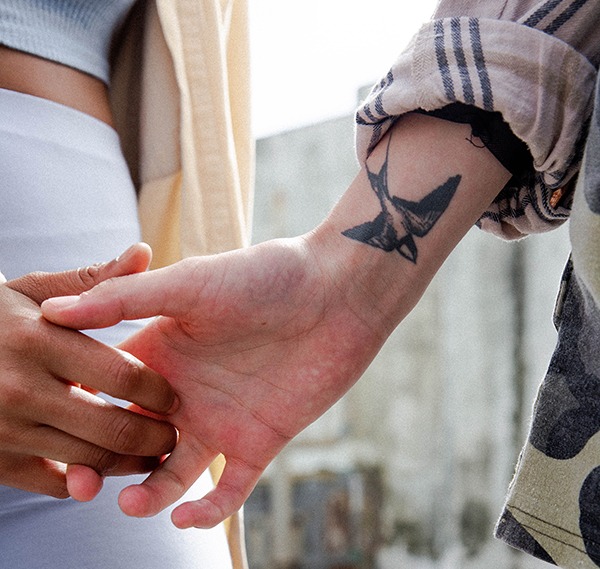Written by Alta Bea.
A straight friend of mine recently shared a book she was reading titled How to Date Men When You Hate Men. As a queer woman who spent most of her adult life dating men, I sympathized. It wasn’t just the infamous terribleness of men that was responsible for my bad experiences with them–it was also how I was conditioned to behave in a relationship. I learned how to have healthy and satisfying interactions with men, especially when it comes to sex, only after spending many years in a queer open relationship and many years in therapy.
I figured out that I like my straight sex as I like all of my sex: queer as fuck.
Growing up in Eastern Europe, I didn’t really have models for healthy sexuality. As a high schooler, I was caught between two extremes. On the one hand, the media I was consuming extoled sex as the best part of life: my favorite TV show was Sex and the City and the magazines I bought always had detailed sex tips. On the other, no one was talking to me about consent, or safety, or enjoyment. On rare occasions when adults talked to me about sex, they made it seem shameful and off-limits.
This background made me a prime target for manipulation. When I was 15, I started dating a guy who was 21. For those who are wondering–yes, this did constitute statutory rape in Ukraine. As a girl in a culture that highly valued virginity, I knew I had to wait to have sex until some unspecified moment. My boyfriend agreed to wait but proceeded to further and further push the boundary of what constituted sex. In his mind, anything that did not ‘break my hymen’ was fair game and to be expected of me. What I learned in the two years of our relationship was a textbook patriarchal view of sex: men have sexual needs and women have a responsibility to satisfy them. Because my boyfriend was manipulative and abusive, it was always easier to do what he wanted than not. Because I thought I was unlovable, it didn’t occur to me to walk away. Because I knew I was doing something I wasn’t supposed to, I didn’t talk to anyone.
It wasn’t just the infamous terribleness of men that was responsible for my bad experiences with them–it was also how I was conditioned to behave in a relationship.
When I got out of that relationship, I got better at saying no, but my mind still detached from my body whenever I did have sex. Although I came out as queer right before I moved to the US for grad school, I continued mostly dating men here. They were decent people that knew most women wanted more than penetrative sex, but I still hadn’t developed the language to talk about my preferences. It didn’t help that I started taking antidepressants, which were a godsend for my life overall but made it more difficult for me to come. I knew it was possible, I got off on my own all the time, but with a partner I became too self-conscious about taking “too long” to have an orgasm. Orgasm or no orgasm, I still enjoyed the intimacy of sex. I continued to struggle with disassociation, but I did my best to stay present. I was content.
When I started having sex with someone who didn’t have a penis, however, my mind was blown. There was a lot of taking turns and if I was ever penetrated, it was solely for my satisfaction. This finally allowed me to step out of the role of a subordinate woman so ingrained in me and figure out my own desires. While I still wouldn’t consider sex “the best thing in the world” (c’mon, have you ever held a tiny puppy?) I now can relate to scenes on TV when couples, lying back and happily panting, say “Wow”.
My relationship with my partner is open, and with time I noticed how the way I thought about sex with men changed for the better as well. Short version? I made it queer. I always loved the word “queer”, and it’s the only label I have ever identified with. Because for me, being queer is not only about being attracted to people of a certain gender, it’s about throwing the whole rulebook out of the window and building every relationship in the unique way that makes sense to all of the participants. This came naturally in my relationship with my primary queer partner, but I also started consciously bringing queer energy into my interactions with men I was romantically interested in. I remind myself that there is no “right” way to do things that I could be accused of not living up to. I remind myself that everyone is different and saying what you want is not only normal, but necessary. I remind myself that it’s okay to want different things with different people. I figured out that I like my straight sex as I like all of my sex: queer as fuck.
About The Author
Alta Bea (not her real name) is a scholar working on violence against marginalized folks in the ancient world. She lives in the Pacific Northwest with her partner and adorable dog.

